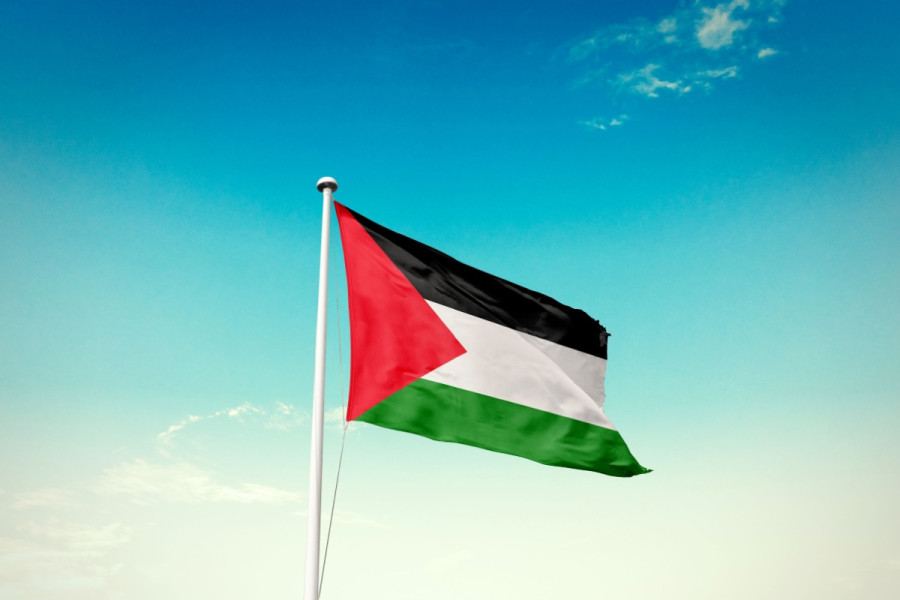Columns
On recognising Palestine
Nepal had recognised the State of Palestine as early as December 1988.
Suvanga Parajuli
In a recent article in Himal Press, Katak Malla wrote that Nepal should have the courage to recognise Palestine. His suggestion comes in the context of the recent announcements by Ireland, Norway and Spain to recognise and establish diplomatic relations with the State of Palestine based on the pre-1967 border. Israel protested the announcements by recalling its ambassadors from Dublin, Oslo and Madrid and summoning the envoys of these countries.
The underlying assumption in Malla’s article seems to be that Nepal had not previously recognised the State of Palestine and thus should undertake it now. However, Nepal had already recognised the State of Palestine as early as December 1988. With due deference to Malla, I proceed here with a series of factual enquiries, limiting the discussion to Nepal’s recognition of the State of Palestine without delving into the history of the Israel-Palestine issue or the intricacies of the current crisis. The article also refrains from discussing the theoretical controversy between the declaratory and constitutive nature of recognition.
Does Nepal recognise Palestine?
On November 15, 1988, in Algiers, the Palestine National Council proclaimed the State of Palestine at its 19th session by adopting the Palestinian Declaration of Independence. This declaration and the existence of Palestine as a sovereign state were at the front and centre of the 81st meeting of the 43rd session of the UN General Assembly held in Geneva a month later. Interestingly, the General Assembly met in Geneva and not at its usual site in New York, mainly due to the US denying a visa to Palestine Liberation Organisation’s leader, Yasser Arafat. The UNGA meeting adopted a series of resolutions on the question of Palestine on December 15, 1988, with recorded votes. Of those resolutions, 43/176 and 43/177, along with Nepal’s recorded vote, are relevant for this enquiry.
Resolution 43/176 welcomed the outcome of the Palestine National Council meeting as a “positive contribution towards possible peaceful settlement of the conflict in the region.” It also called for convening the International Peace Conference on the Middle East under the aegis of the UN. However, it refrained from using the term State of Palestine per se. In contrast, resolution 43/177 decided that the designation “Palestine” should be used instead of “Palestine Liberation Organisation” in the UN system. This resolution also acknowledged the proclamation of the State of Palestine by the Palestine National Council and affirmed the need to enable the Palestinian people to exercise their sovereignty over their territory occupied since 1967. Regarding recognition, 43/176 was hesitant compared to 43/177.
It would suffice this enquiry if we could establish that Nepal voted in favour of both resolutions. However, Nepal voted affirmatively only for the first resolution. In the case of 43/177, which is unequivocal about the recognition of Palestine, Nepal abstained. Although the abstention doesn’t mean voting against the motion, Nepal did not express its support for resolution 43/177.
If we use a rather restrictive threshold of interpretation, we cannot conclusively say that Nepal’s voting records confirm its recognition of the State of Palestine. Therefore, the evidence for recognition must be sought elsewhere.
Nepal’s statement at the General Assembly meeting is of particular relevance. In his statement to the Assembly, Nepal’s Permanent Representative Ambassador Jai Pratap Rana said, “... declaration of the Palestine National Council in Algiers raised hopes for a just and lasting peace in the region. His Majesty’s Government of Nepal has welcomed this historic declaration ...”. Moreover, he emphasised Nepal’s firm position that the long-lasting and comprehensive peace in the Middle East should rest on three fundamental elements. First, the withdrawal of Israel from territories occupied since 1967. Second, an unconditional respect for the rights of the Palestinian people, including the right to an independent State. And third, recognition of the rights of Israel and every other State in the region to live in peace within secure and recognised boundaries free from threats and acts of force. Till today, these three pillars of Nepal’s position on the Israel-Palestine issue still hold water.
This 1988 statement from Nepal conclusively affirms that Nepal recognised Palestine in its pre-1967 borders as a sovereign state. Nepal also articulated that the Palestinians in occupied territory were denied their right to exercise sovereignty. Moreover, Nepal’s support for a two-state solution on pre-1967 borders has long stood.
Express or tacit?
The Montevideo Convention on the Rights and Duties of States 1933, parts of which constitute customary international law, states in Article 7 that state recognition may be “express or tacit.” While identifying an express recognition, it is sufficient to look at any formal declarations or statements; in the case of tacit recognition, one needs to look at the acts that imply the intention of recognising the new state.
Had we established Nepal’s recognition of Palestine based on the voting records alone, the case would have arguably been that of a tacit recognition. However, in our earlier enquiry, we ruled out that case. Ambassador Rana’s statement showed that recognition of Palestine was “express” and not tacit. Nepal’s act of recognition was formal and given after due thought.
Has Nepal revoked the recognition?
Article 6 of the Montevideo Convention said that the recognition is unconditional and irrevocable. However, state practices show that there have been revocation cases in rare scenarios. Many examples include the withdrawal of recognition in the case of Taiwan. Therefore, to appreciate Prof Malla’s assertion in a well-rounded manner, it would also be pertinent to enquire if Nepal has ever revoked its recognition.
As recognition is ultimately a “matter of political discretion”, as Hersch Lauterpacht wrote in 1947, despite its legal consequences, a state may withdraw recognition with certain justifications, often based on political interests. However, no evidentiary material suggests that Nepal had ever revoked its recognition of Palestine. On the contrary, Nepal supported Palestine’s elevation as an observer state of the UN General Assembly in 2012. On May 10, 2024, when the UNGA adopted the resolution urging the Security Council to favourably consider the full membership of Palestine, Nepal was among the 143 countries that voted in favour.
Based on the above inquiries, it conclusively appears that Malla’s suggestion to the Nepali state to recognise Palestine doesn’t hold up when tested against the facts. It may, however, would have been a different argument altogether had he suggested full-fledged “diplomatic relations” rather than recognition.




 12.12°C Kathmandu
12.12°C Kathmandu















